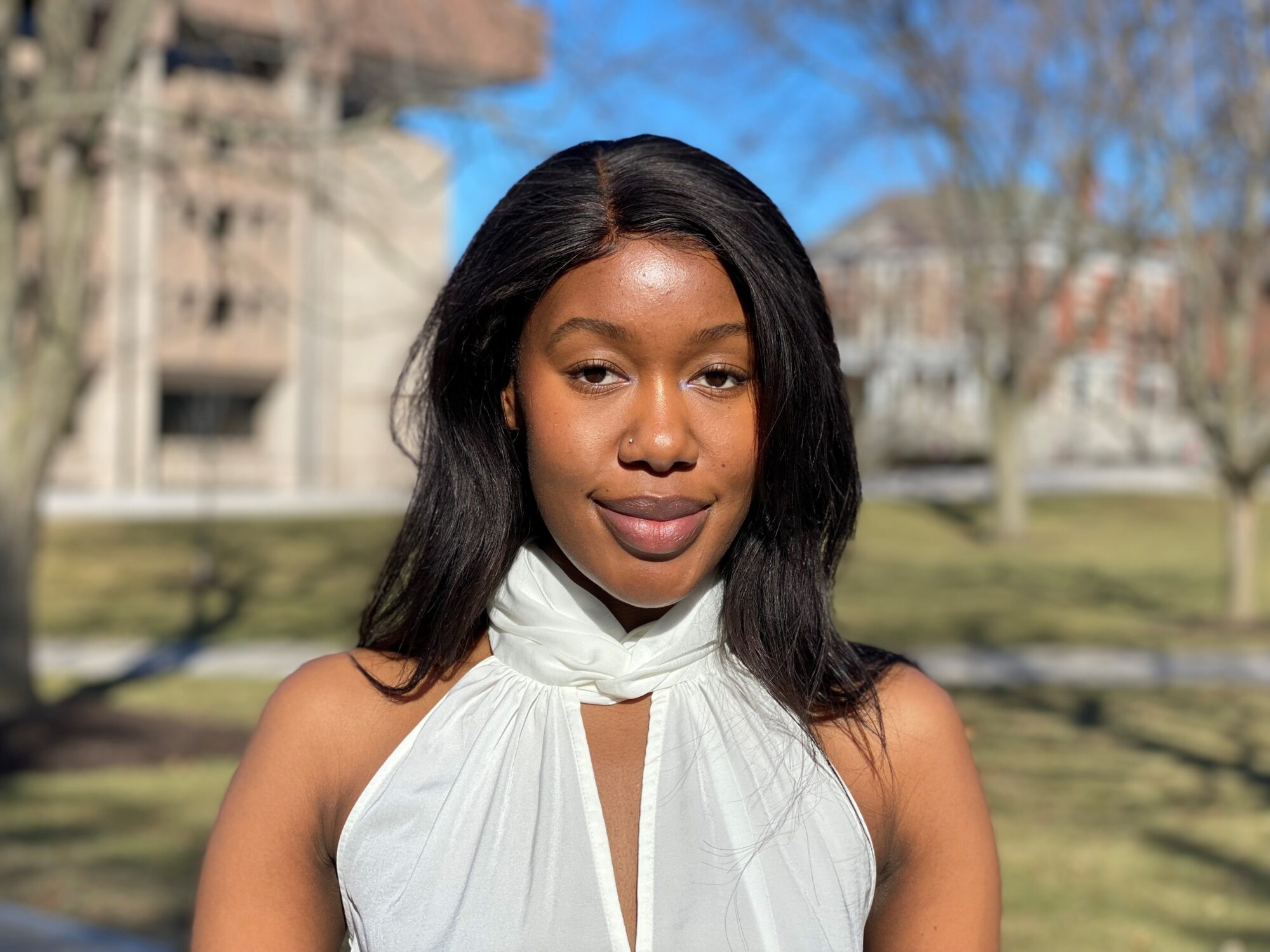
Wigs have become extremely popular for the fun, fashion, and versatility. You can go from having blue hair to blonde, from blonde to red, from red to whatever color, length, and style you could think of. That trend has also produced a market for wig caps. Although wig caps provide a great base for a seamless wig application, they also negatively impact the environment. As someone who loves experimenting with wigs, Damaris (Koi) Munyua G’22, worked to find a more sustainable solution to wig caps.
After taking the Opportunity Recognition and Ideation class for her master’s degree in Entrepreneurship and Emerging Enterprises in the Martin J. Whitman School of Management, Munyua started thinking about the items she was using in her everyday life and the issues she had with them.
Wig caps came to mind. Since it was hundreds of dollars to get a wig installed by a hair stylist, Munyua experimented with it herself. Soon, she found that the wig caps on the market were irritable to the skin, did not match black women’s skin tones and were bad for the environment. Munyua had great solutions to these problems. After working through the ideas in her course, she was encouraged by her instructor to keep pursuing the idea outside of the class project.
The target market for wig caps are usually African American women, but the wig caps on the market are usually beige in color. Munyua’s first solution was to make wig caps that matches skin tones of black women to provide better options.
Her next solution was to make the wig caps out of hemp nylon instead of cotton nylon or other synthetic materials. Although cotton may seem sustainable, cotton is not sustainably sourced – with lots of water waste and chemical pollution. Synthetic materials are non-biodegradable. Since wig caps are one use items, the waste that comes from the wig industry starts to escalate very quickly.
Hemp became a perfect solution, with the additional benefit of hypoallergenic qualities that prevent skin irritation.
Munyua is still learning more about products and intricacies of the wig industry. She is inspired by black owned businesses like Rebounded that makes plant based braided hair instead of synthetic ones.
Currently, Munyua is doing market research – talking to hair stylists and wig cap users. Talking to hair stylists is a great resource since they go through a considerable amount of wig caps compared to the average person.
Munyua was connected to the Blackstone LaunchPad at Syracuse University Libraries at the Bird Library, to get more idea on how she should start on her ideas. She has competed in a business plan pitch competition at the LaunchPad before and plans to compete in more.
As an entrepreneur but a fashionista at heart, Munyua was working on a venture called Fitted before. Fitted would be a platform for up-and-coming fashion designers to find their client base. Although Munyua isn’t working on the project anymore, she keeps her passion for fashion alive by sewing during her free time.
Story by LaunchPad Global Fellow Natalie Lui ‘22; photo by the LaunchPad